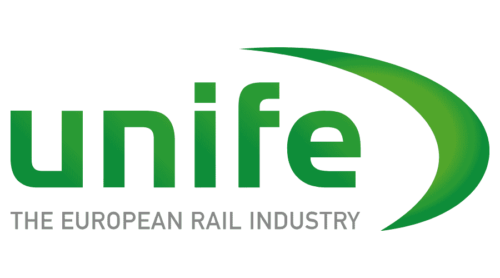UNIFE AND CER WELCOME THE COUNCIL’S GENERAL APPROACH ON TEN-T
The TEN-T Guidelines set the strategic framework for transport infrastructure investment until 2050. This comprises two layers: a broad comprehensive network and a core network consisting of the strategically most important parts of the network.
The TEN-T Guidelines set technical standards for rail infrastructure in the comprehensive and core networks, some of which go beyond the current Infrastructure TSI. CER and UNIFE very much welcome the agreement of the Council to support these ambitious standards on the core network. CER and UNIFE believe that on conventional freight trains, the axle load should be extended to a maximum of 22.5 tonnes, and the train length to 750 metres on upgrades and on new lines on the TEN-T network.
Where possible, this should be extended to 1,500 metres if economical, operational and technical feasibility allows it. These increased standards are crucial as they enhance interoperability and the overall capacity of the network.
The two associations feel that corridor structures, such as those proposed by the Commission, could lead to better coordination between member states and stakeholders in the planning and investment of corridors. They could also be beneficial in terms of securing public funds and attracting private capital to transport infrastructure. In this respect, they welcome the agreement of the Council to support this concept in principle.
The governance structure elaborated in Regulation EC 913/2010 concerning a European rail network for competitive freight shall form a basis for the organization of the core network corridor structures. CER and UNIFE therefore particularly welcome the specific reference in the Council text to the work that has already been carried out by the rail freight corridors. At the same time, CER and UNIFE regret that the Council has significantly reduced the role of the corridor coordinator with respect to the Commission’s proposal. European Coordinators for ERTMS and for the TEN-T priority projects have proven to be effective and necessary in pushing forward border crossing projects and missing links, and thereby create EU added value.
However, CER and UNIFE are disappointed by the Council’s proposal to remove the equipment of railway lines with ERTMS from the mandatory requirements for the comprehensive network. Indeed the full benefits of ERTMS are realised only when a significant number of countries have made the necessary investments to upgrade their network and the ERTMS deployment is essential also on the comprehensive network.
Furthermore, CER and UNIFE regret that the Council has weakened the Commission’s proposal on improving the resilience of transport infrastructure to climate change and on ensuring seamless mobility and accessibility for all transport users, including elderly people and persons of reduced mobility.
While CER and UNIFE welcome the Council’s support for keeping the Commission proposal a regulation instead of a guideline, the two associations regret that the Council has introduced the possibility of adjusting the deadlines for completing the core and comprehensive networks. It is essential to set realistic intermediate objectives (for example 2015, 2020 and 2025) in order to reinforce the credibility of the programme.
The TEN-T proposal will only be meaningful if it is backed by adequate funding. CER and UNIFE very much welcome the proposal of the Commission to create a Connecting Europe Facility with a transport budget of EUR 21.7 billion, which is to be supplemented with additional means from the Cohesion Fund and urge member states to support these proposals in the ongoing negotiations on the Multi-annual Financial Framework. The rail organisations also support the proposed co-financing rates of the financial instrument Connecting Europe Facility (CEF), which reflect an important shift towards more sustainable modes of transport.
CER Executive Director Libor Lochman said: “We welcome the Council’s stance to even further improve the Commission’s very comprehensive TEN-T proposal. Rail services are only as good as the infrastructure they run on. Adequate funding is therefore essential for a well-developed European railway network. That’s why we urge member states to ensure the necessary financial means to make the proposed networks reality.”
UNIFE Director General Philippe Citroën stated: “The rail industry is keen on implementing an ambitious TEN-T programme, fully in line with the Transport White Paper. For this to happen, it is essential to set clear objectives and deadlines and focus on the interoperability of the rail network”.
